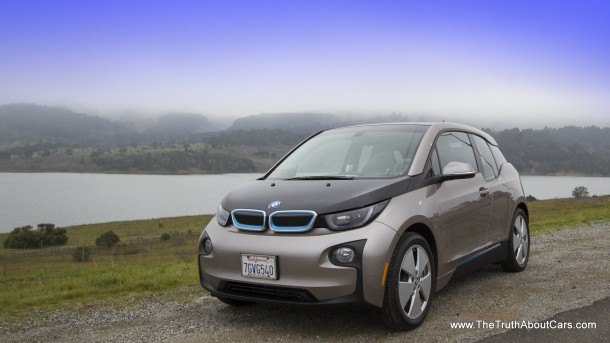BMW Facing Lawsuit Over I3 REx Power Loss

Owners of BMW i3s equipped with optional range extenders — read: two-cylinder engine that generates electricity — are suing the automaker for an issue that could leave those drivers going slow in the fast lane.
According to Green Car Reports, the BMW i3 REx will drop down to 45 miles per hour under certain conditions, which some owners believe is a safety issue.
The class-action lawsuit alleges the small range extender isn’t strong enough keep up with motivational demand at highway speeds when the battery is nearly depleted. Engine and battery management software steps in and reduces the BMW i3’s speed to 45 mph so that battery charge can catch up with demand.
“The BMW i3 Range Extender feature is a dangerous instrumentality to the owners of the vehicles and to other motorists on the road,” said Jonathan Michaels of MLG Automotive Law, the firm handling the class-action suit. “Having a sudden and unexpected loss of power in a motor vehicle can result in a catastrophic situation for all those on the road. These cars are dangerous and should not be driven.”
Green Car Reports notes three of its editors have experienced the issue in addition to its many owners.
The outlet spoke with electric-car advocate Tom Moloughney, who is also a BMW i3 owner. He stated the issue mostly comes down to a lack of knowledge of how the range extender works, and refrained from blaming the i3 for a quirk that doesn’t affect any other vehicle on sale today.
“The biggest problem is the lack of information on how the REx works at the dealership level. I think if people understood how the range-extender system works, then there would be fewer problems,” Moloughney said.
A representative for BMW said the company can’t comment on pending litigation.
The BMW i3 REx stickers, without options, for $47,245, including destination.
[Image: © 2015 Alex L. Dykes/The Truth About Cars]

More by Mark Stevenson
Latest Car Reviews
Read moreLatest Product Reviews
Read moreRecent Comments
- Formula m For the gas versions I like the Honda CRV. Haven’t driven the hybrids yet.
- SCE to AUX All that lift makes for an easy rollover of your $70k truck.
- SCE to AUX My son cross-shopped the RAV4 and Model Y, then bought the Y. To their surprise, they hated the RAV4.
- SCE to AUX I'm already driving the cheap EV (19 Ioniq EV).$30k MSRP in late 2018, $23k after subsidy at lease (no tax hassle)$549/year insurance$40 in electricity to drive 1000 miles/month66k miles, no range lossAffordable 16" tiresVirtually no maintenance expensesHyundai (for example) has dramatically cut prices on their EVs, so you can get a 361-mile Ioniq 6 in the high 30s right now.But ask me if I'd go to the Subaru brand if one was affordable, and the answer is no.
- David Murilee Martin, These Toyota Vans were absolute garbage. As the labor even basic service cost 400% as much as servicing a VW Vanagon or American minivan. A skilled Toyota tech would take about 2.5 hours just to change the air cleaner. Also they also broke often, as they overheated and warped the engine and boiled the automatic transmission...


































Comments
Join the conversation
The sooner the weenies that rent these new give up on them, the sooner they can fall into the hands of shade tree mechanics who can find out if there is potential for repowering their hideous carbon fiber shells with Hayabusa or K-series engines and giving them a reason for existing.
The i3 is crippled to comply with California "electric vehicle" silliness to get taxpayer funding and get single-occupant use of the carpool lanes. Part of the crippling is that the engine won't charge the battery more than some very small amount. So, when you're headed to Lake Tahoe and know full well that you'll be putting considerable demands on the propulsion unit, you can't tell the i3 to charge the battery to, say 50% before you get to the mountain climb.